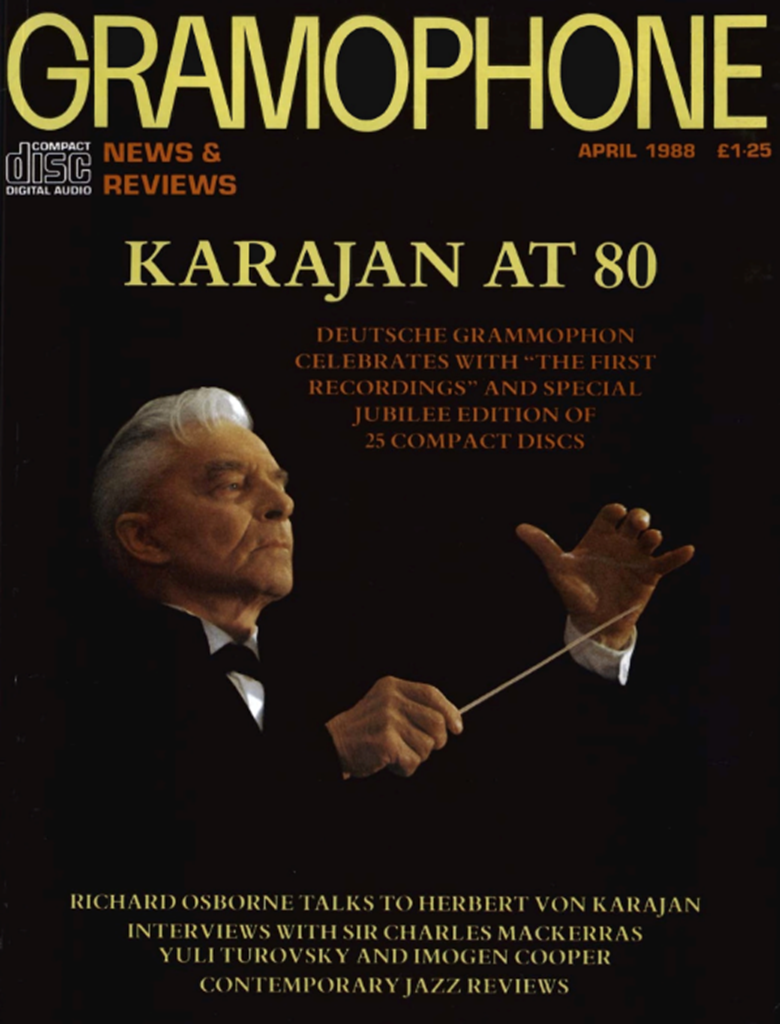Karajan At 80 – Richard Osborne talks to Herbert von Karajan (Gramophone, April 1988)
Richard Osborne
Wednesday, April 4, 2012
‘Fortunately, I was not born to obey’, Karajan told me with a disarming chuckle as we sat in his house in Anif looking across snow-covered meadows to the towering Untersberg which Karajan has known, lived with, and clambered over since he was a child...

Register now to continue reading
Thanks for exploring the Gramophone website. Sign up for a free account today to enjoy the following benefits:
- Free access to 3 subscriber-only articles per month
- Unlimited access to our news, podcasts and awards pages
- Free weekly email newsletter








